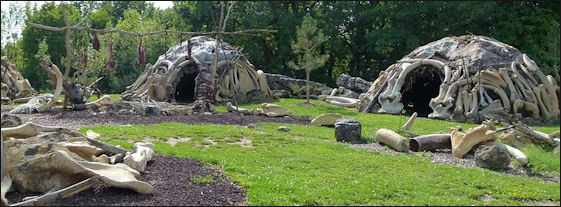Environment & Energy
Related: About this forumGlobal late Quaternary megafauna extinctions linked to humans, not climate change
The late Quaternary megafauna extinction was a severe global-scale event. Two factors, climate change and modern humans, have received broad support as the primary drivers, but their absolute and relative importance remains controversial. To date, focus has been on the extinction chronology of individual or small groups of species, specific geographical regions or macroscale studies at very coarse geographical and taxonomic resolution, limiting the possibility of adequately testing the proposed hypotheses. We present, to our knowledge, the first global analysis of this extinction based on comprehensive country-level data on the geographical distribution of all large mammal species (more than or equal to 10 kg) that have gone globally or continentally extinct between the beginning of the Last Interglacial at 132 000 years BP and the late Holocene 1000 years BP, testing the relative roles played by glacial–interglacial climate change and humans. We show that the severity of extinction is strongly tied to hominin palaeobiogeography, with at most a weak, Eurasia-specific link to climate change. This first species-level macroscale analysis at relatively high geographical resolution provides strong support for modern humans as the primary driver of the worldwide megafauna losses during the late Quaternary.
Full text available at the link.
pscot
(21,024 posts)
Ten to fifteen thousand years old, they're built of mammoth bones.
GliderGuider
(21,088 posts)
Whether the deed was done with pointed sticks and rocks, or a Sharps rifle made little difference if you were a huntable megafaun...
FBaggins
(26,721 posts)Since there will be no distinction between climate change and linkage to humans.
Benton D Struckcheon
(2,347 posts)...than we are.
Actually, a thought occurred to me on reading this: I wonder if anyone has thought that maybe the turn to agriculture was motivated by a lack of megafauna to hunt down? Gardening on a small scale has probably always been practiced, but large scale agriculture may have gotten a kick from extinctions of megafauna.
GliderGuider
(21,088 posts)Our primary evolutionary advantage is our brain, which is essentially a limit-removal mechanism. The vicious circle of growing until a limit is hit, then using our brains to circumvent the limit, followed by more growth (either in numbers or activity) is a positive feedback loop that is inherently unsustainable. It's also genetically embedded and unconsciously implemented, which is why we can't short-circuit it through conscious thought. As you say, this behavior is visible throughout human history. It's just what we are.
The concept of sustainability is a lie.
Benton D Struckcheon
(2,347 posts)so we have to try.
The2ndWheel
(7,947 posts)The human spirit can't be contained by dictators, just as nature can't be controlled by humanity. We'll try though. We really can't do anything else.
defacto7
(13,485 posts)but our definition of "try". Humans have tried to survive simply by being a life form on this planet. How we have tried, how we have been able to recognize our place in the system, how our senses have analyzed our surroundings and dealt with it for survival is what matters. Higher functioning brains don't auto-translate to better in all systems, on the contrary. Evolving brain function can be our dead end if the increased function comprehends and selects individual or clan identity for survival over survival within the context of the whole system. I think we are a failed species in that our brain developed too quickly under extreme conditions, probably extinction events, disrupting the processes that may have made us a viable addition to the planet. Unfortunately, I think we missed the boat and will be relatively short lived.
So, I don't say we have to try... we must change. If we do make massive uncharacteristic changes in our patterns of survival we may extend our species by a few more centuries. Continue the way we are.... I doubt it.
defacto7
(13,485 posts)It fills a gaping hole I call "massive uncharacteristic changes" we need to make. We won't.
pscot
(21,024 posts)The Pomo people lived along the Mendocino coast for 3000 years fishing and harvesting acorns.
Benton D Struckcheon
(2,347 posts)That study is on global effects. One tribe doesn't invalidate it.